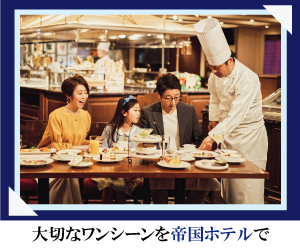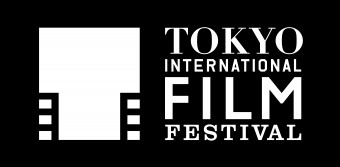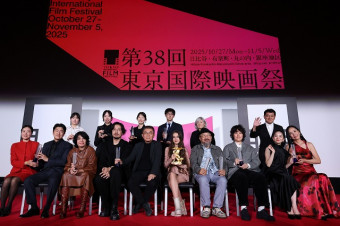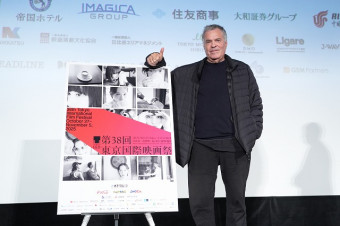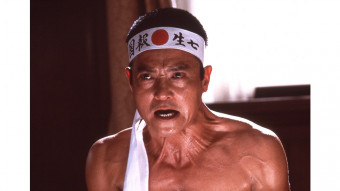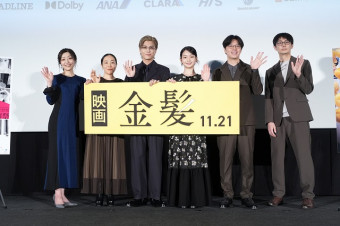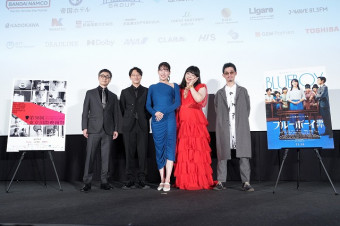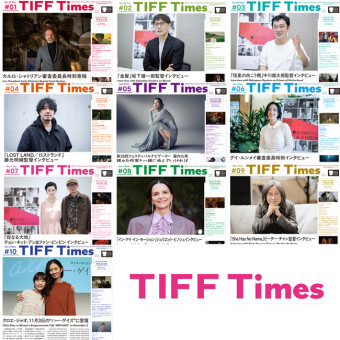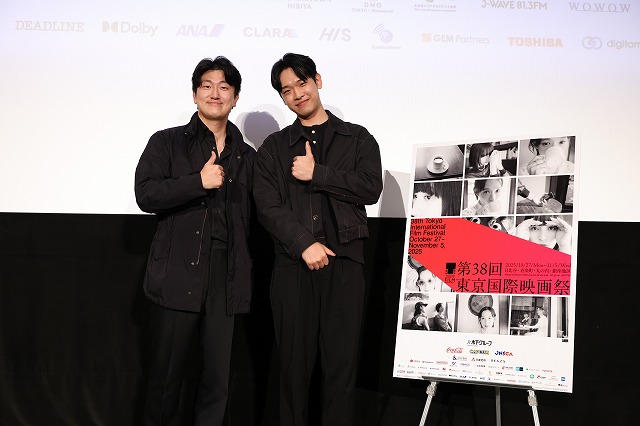
The audience who watched the world premiere of Roh Young-wan’s deeply moving Halo on October 29 at the 38th Tokyo International Film Festival were stunned into silence by its ending. But when Roh and his young star, Choi Gang-hyun, mounted the stage for a post-screening Q&A session moderated by TIFF Senior Programmer Ishizaka Kenji, the audience was clearly eager to share their feelings about the film.
Roh’s feature directorial debut focuses on 27-year-old Min-joon, a pleasant, hard-working delivery man who is marginalized but struggling mightily to lift himself up. As he goes about his rounds each night (after spending part of each day writing more pages of his movie script before sleeping fitfully in his delivery van), the radio spews nothing but doom-laden news. And all too regularly, Min-joon gets yet another call about a family brawl and must hasten to prevent bloodshed. He is the guardian of his disabled older brother, Min-ha, and when Min-ha inadvertently assists a voice-phishing scam, Min-joon must find a way to mediate with the victim or his brother will go to jail.
One day, he gives helpful directions to a genteel astrologer, who in turn reads his charts. “Min-joon, you were born under a lucky star and should be a self-made man,” he tells him. “But your family’s stars overwhelm yours.” When the astrologer learns that Min-joon wants to be a movie director, he tells him that most directors have halos, and the young man will only have one if he travels to the UK. Eager to “follow his halo,” Min-joon increases his workload and saves more by eating even less convenience store food. But all his valiant efforts to seize control of his own fate are soon to be in vain.
In person on the TIFF Asian Future stage, Choi Gang-hyun seemed the mirror image of his character, greeting the audience with a well-delivered speech in Japanese stressing that he was thrilled to be in Tokyo, and framing carefully considered responses to questions.
Confirming that Choi had been the same age as Min-joon when he shot the film, Ishizaka asked whether the actor himself had decided to keep his emotions in check and to wear a poker face, or whether he had worked that out with the director.
Said Choi, “I kept telling myself that for Min-joon, everything should be okay, no matter what happens. From childhood, he’s been tormented by so many difficulties posed by his parents and older brother, so he’s developed a tremendous sense of responsibility. For Min-joon, I thought it was much more natural to suppress his anger rather than outwardly expressing it.”
Following the first of many enthusiastic comments for the duo from the audience, a man noted that Min-joon’s life seemed so real, he wondered whether there had been an inspiration for the role.
“The most important aspect of the film for me,” said Roh, “was for it to appear real. Home delivery is such an integral part of Korean life that the delivery men are somewhat invisible, but they help people connect with each other and with the world. I chose the job because Min-joon is someone you can find anywhere in Korean society.”
It’s such a profound film, said another viewer, but what is the message?
“While I was making this film,” Roh answered, “I first thought about the relationships between people, which tend to be severed or ruptured. I thought about how two people can become closer, how encounters between people are possible, how we can close the social gaps that exist, how we can bring about a better society. I hope that after you leave the theater, Min-joon will continue living in your heart.” Heads nodded around the hall.
Another viewer commented that he’d found it to be intense, spending 2 hours with Min-joon in such close quarters, eating, sleeping, even showering together. “Was it difficult for you to get used to the camera?” he asked Choi.
“This was my first feature film,” admitted the actor. “I’ve only acted in short films before. I was never really conscious of the camera. After I was cast, I would wake up every single day and spend my day as Min-joon. I think this is unusual, but prior to shooting, I met the director and we rehearsed every scene together. When we started shooting, there were a lot of long takes, and all I had to do was live as Min-joon, reacting in various ways as things happened to him.” Choi was being overly modest, as his heartbreaking performance demonstrates a true mastery of the nuanced expression.
Another viewer asked why there were delivery scenes during the end credits, when a tragedy had just befallen Min-joon in the film.
Said Roh, “I wanted to express scenes of life that might still be repeating themselves somewhere. And I also wanted to ask the audience if they would do everything in their power — if they saw someone like Min-joon in the van — if they would break the window and prevent these types of tragedies from happening in real life. As I said before, I wanted Min-joon to live on in your heart.”
And so, for a moment, there is a wonderful ambiguity to the ending of Halo.
Q&A Session: Asian Future
Halo
Guests: Roh Young-wan (Director/Screenplay), Choi Gang-hyun (Actor)




















